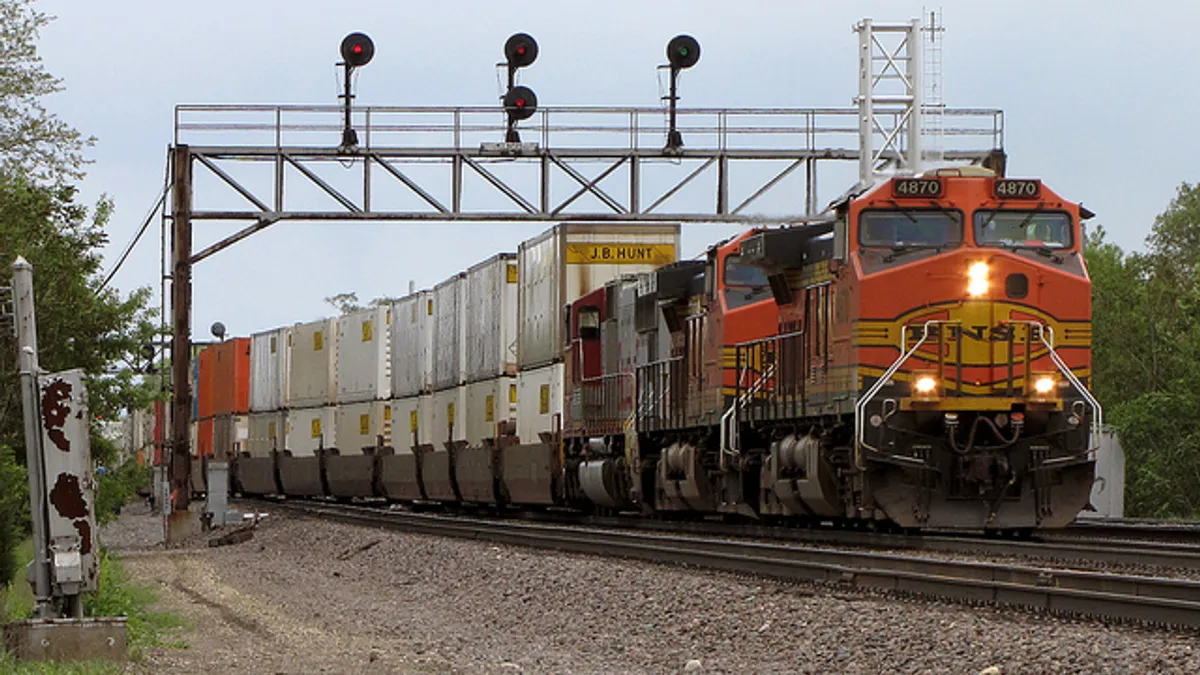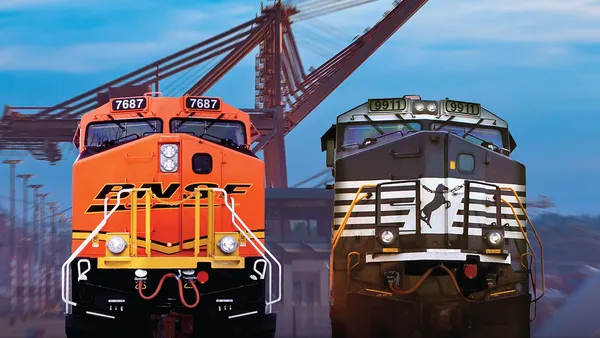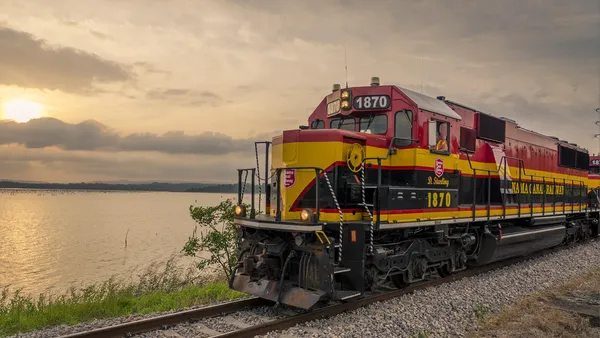Dive Brief:
- Rail ramp congestion in Chicago and Southern California is slowing the movement of intermodal traffic for inbound and outbound loads, according to a service notice from J.B. Hunt.
- Norfolk Southern has stopped allowing shipments at gates in Buffalo, New York; Chicago; Pittsburgh; and Toledo, Ohio. BNSF has limited access at gates in Chicago; Los Angeles; and San Bernardino, California, according to the notice.
- "As a result of railroad restrictions and closures, J.B. Hunt’s ability to pick up freight in the lanes listed above is expected to be impacted through Saturday, December 19," the alert reads.
Dive Insight:
The nation's ports are facing unseasonably high import levels. And J.B. Hunt's alert shows that as this cargo moves away from the coast, it is slowing down inland terminals just as it has slowed ocean gateways.
Norfolk Southern described "severe congestion" in its service alert about its Chicago gate closure. "The Chicago 63rd Intermodal facility will remain open during the ingate closures, and we encourage customers to outgate equipment from the facility in order to increase parking capacity," the alert reads.
The congestion-induced sluggishness comes a week before Christmas when railroads typically see lower volume and reduce capacity as a result, according to a holiday notice from BNSF earlier this month.
"BNSF's Intermodal holiday operating plan will adjust operations to account for this potential reduction in traffic," BNSF's notice reads. "As a result, shipments from Thursday, December 24, through Sunday, January 3, 2021, may experience delays of approximately 24 to 48 hours."
The congestion is also happening at a time when intermodal traffic is seeing high demand, thanks in part to high rates in the trucking market.
"Inventory replenishment and increasing e-commerce activity, along with some capacity constraints on the trucking side, have helped intermodal to turn the corner this quarter," Intermodal Association of North America CEO Joni Casey said in a statement last month talking about Q3 intermodal volume.
J.B. Hunt Executive Vice President of Intermodal Darren Field said on the company's Oct. 16 earnings call that congestion was affecting delivery times during that quarter.
"Rail terminal congestion and a slower pace of unloading at customer destinations have contributed to a meaningful slowdown in the velocity of the supply chain and thus the productivity of our equipment," Field said.
This high volume has continued into the fourth quarter with intermodal volume up nearly 5% YoY for the week ending Dec. 12, according to the latest numbers from the Association of American Railroads.
Rail analysts question the railroads' ability to quickly add capacity to keep up with shipper demand and compete with trucking. The lead time to order and receive a freight car is much longer than buying a truck, Jim Blaze, a railroad analyst and former Conrail employee, told sister publication Transport Dive in October. "They just don't have enough equipment capacity," Blaze said, referring to railroads.














